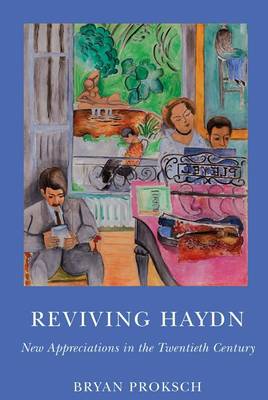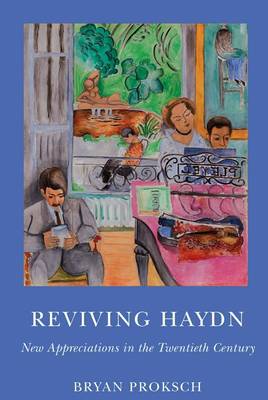
- Afhalen na 1 uur in een winkel met voorraad
- Gratis thuislevering in België vanaf € 30
- Ruim aanbod met 7 miljoen producten
- Afhalen na 1 uur in een winkel met voorraad
- Gratis thuislevering in België vanaf € 30
- Ruim aanbod met 7 miljoen producten
Zoeken
Omschrijving
By the 1840s Joseph Haydn, who died in 1809 as the most celebrated composer of his generation, had degenerated into the bewigged "Papa Haydn," a shallow placeholder in music history who merely invented the forms used by Beethoven. In a remarkable reversal, Haydn swiftly regained his former stature within the opening decades of the twentieth century. Reviving Haydn: New Appreciations in the Twentieth Century examines both the decline and the subsequent resurgence of Haydn's reputation in an effort to better understand the forces that shape critical reception on a broad scale. No single person or event marked the turning point for Haydn's reputation. Instead a broad resurgence reshaped opinion in Europe and the United States in short order. The Haydn revival engaged many of the music world's leading figures -- composers (Vincent d'Indy and Arnold Schoenberg), conductors (Arturo Toscanini), performers (Wanda Landowska), critics (Lawrence Gilman), and scholars (Heinrich Schenker and Donald Tovey) -- each of whom valued Haydn's music for specific reasons and used it to advance particular goals. Yet each advocated for a rehearing and rereading of the composer's works, calling for a new appreciation of Haydn's music. Bryan Proksch is assistant professor of music history at Lamar University in Beaumont, Texas, where he specializes in the music of the late eighteenth century.
Specificaties
Betrokkenen
- Auteur(s):
- Uitgeverij:
Inhoud
- Aantal bladzijden:
- 300
- Taal:
- Engels
- Reeks:
- Reeksnummer:
- nr. 124
Eigenschappen
- Productcode (EAN):
- 9781580465120
- Verschijningsdatum:
- 1/10/2015
- Uitvoering:
- Hardcover
- Formaat:
- Genaaid
- Afmetingen:
- 157 mm x 234 mm
- Gewicht:
- 635 g

Alleen bij Standaard Boekhandel
+ 418 punten op je klantenkaart van Standaard Boekhandel
Beoordelingen
We publiceren alleen reviews die voldoen aan de voorwaarden voor reviews. Bekijk onze voorwaarden voor reviews.








